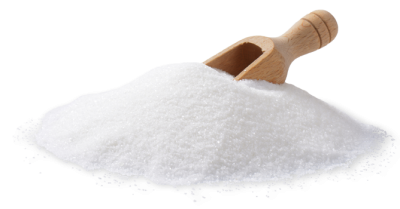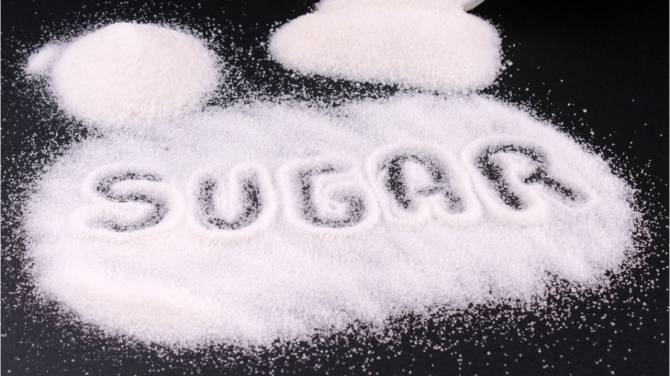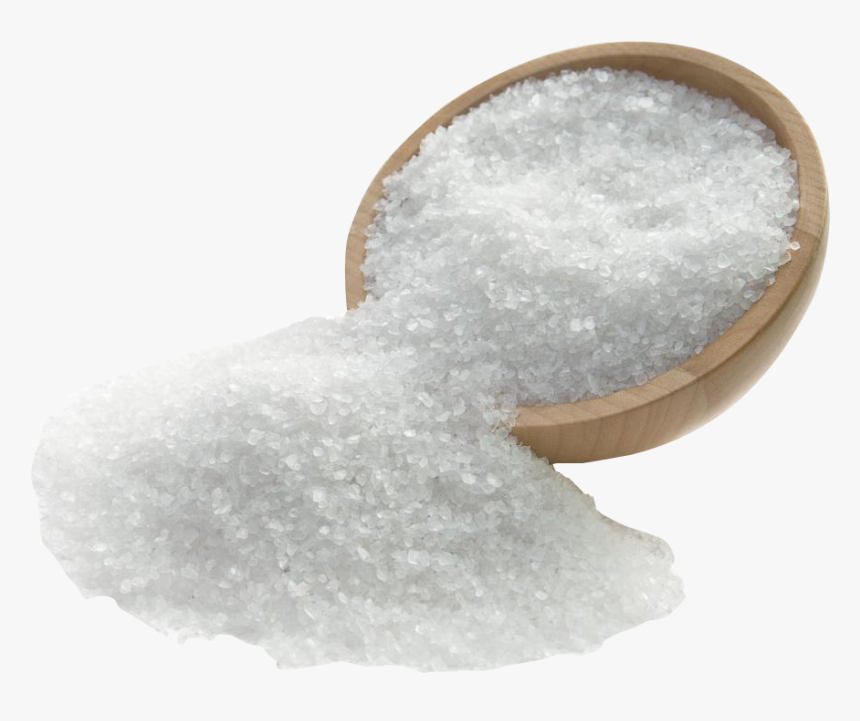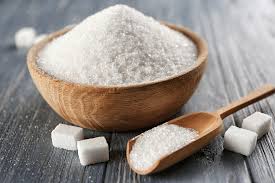Sugar is the generic name for sweet-tasting, soluble carbohydrates, many of which are used in food. Table sugar, granulated sugar, or regular sugar, refers to sucrose, a disaccharide composed of glucose and fructose. Simple sugars, also called monosaccharides, include glucose, fructose, and galactose. Compound sugars, also called disaccharides or double sugars, are molecules composed of two monosaccharides joined by a glycosidic bond. Common examples are sucrose (table sugar) (glucose + fructose), lactose (glucose + galactose), and maltose (two molecules of glucose). In the body, compound sugars are hydrolysed into simple sugars. Longer chains of monosaccharides are not regarded as sugars, and are called oligosaccharides or polysaccharides. Some other chemical substances, such as glycerol and sugar alcohols, may have a sweet taste, but are not classified as sugar. Sugars are found in the tissues of most plants. Honey and fruit are abundant natural sources of unbounded simple sugars. Sucrose is especially concentrated in sugarcane and sugar beet, making them ideal for efficient commercial extraction to make refined sugar. In 2016, the combined world production of those two crops was about two billion tonnes. Maltose may be produced by malting grain. Lactose is the only sugar that cannot be extracted from plants. It can only be found in milk, including human breast milk, and in some dairy products. A cheap source of sugar is corn syrup, industrially produced by converting corn starch into sugars, such as maltose, fructose and glucose.




